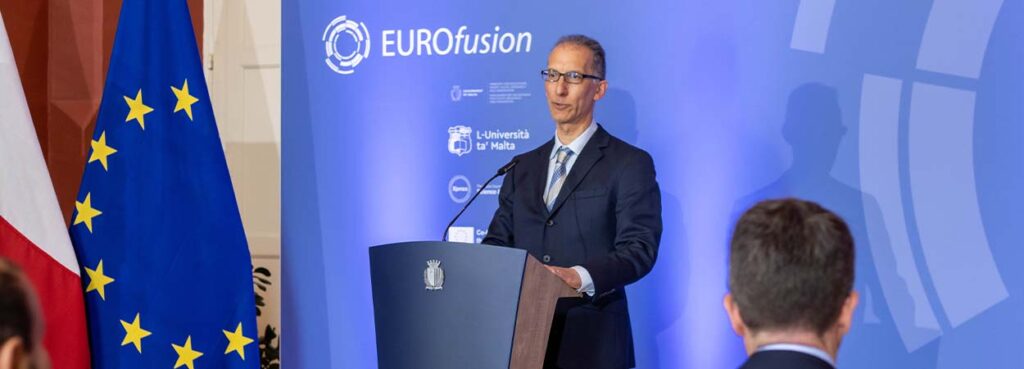Malta’s participation within the EUROfusion programme was announced in an event held at the Villa Bighi chapel, in Kalkara on Friday 28 April 2023. The University of Malta together with the Malta Council for Science and Technology, represented by Rector, Prof. Alfred J. Vella, and MCST Chairperson, Dr Tonio Portughese, respectively, addressed those present in a public event marking the milestones and achievements obtained.
Everything came to fruition following a Memorandum of Understanding signed between the two parties in 2021, which bestowed the roles of programme managers and programme owners onto the University and MCST, respectively. This is also Malta’s first attempt at participating in a research project relating to nuclear fusion, ultimately opening a number of opportunities for Maltese academics to further their research in the area.
The involvement of the University of Malta within the ‘Research and Development towards a European Fusion Reactor’ (ENDURE) programme is being undertaken at a national level while closely collaborating with other stakeholders within the EUROfusion consortium. These members amount to 30 research organisations which are associated to 152 universities and companies across 25 EU member states, together with the UK, Switzerland and Ukraine. The local team from the University of Malta comprises of the project support personnel which are spearheaded by Prof. Martin Muscat and Prof. Ing. Pierluigi Mollicone.

In a comment given to mark this momentous occasion, the Rector said, “One of our main goals at the University is to see and support more research opportunities.” He further elaborated, “Such help in this area from MCST paves the way to ensure that Malta remains an active member at the forefront within the world of Research as it joins other stakeholders from within, and beyond the European Union in this extremely important scientific project for humanity”.
Speaking on behalf of MCST, Dr Portughese expressed that “there are many challenges due to the requirements for materials and engineering technologies in fusion power plants, including the issues related to radiation damage, erosion, and high-temperature operation. Nonetheless, the University team is making steady progress towards overcoming these challenges”. He further added that Malta’s participation in the EUROfusion consortium is contributing towards the development of technologies for a commercial fusion power plant.
Funded by the European Union via the Euratom Research and Training Programme, the EUROfusion programme will direct and integrate research across the continent into a comprehensive R&D programme, to realise fusion energy. Specialists from the University of Malta team have already been contributing to the programme by conducting structural stress analysis as early as 2021, whilst also being involved in two EUROfusion consortium work packages.
